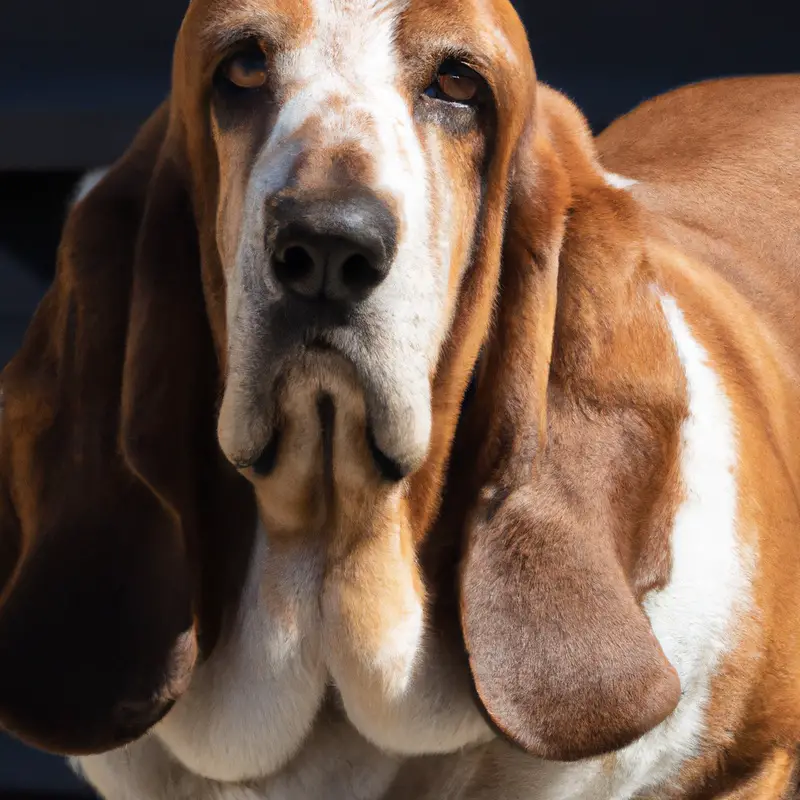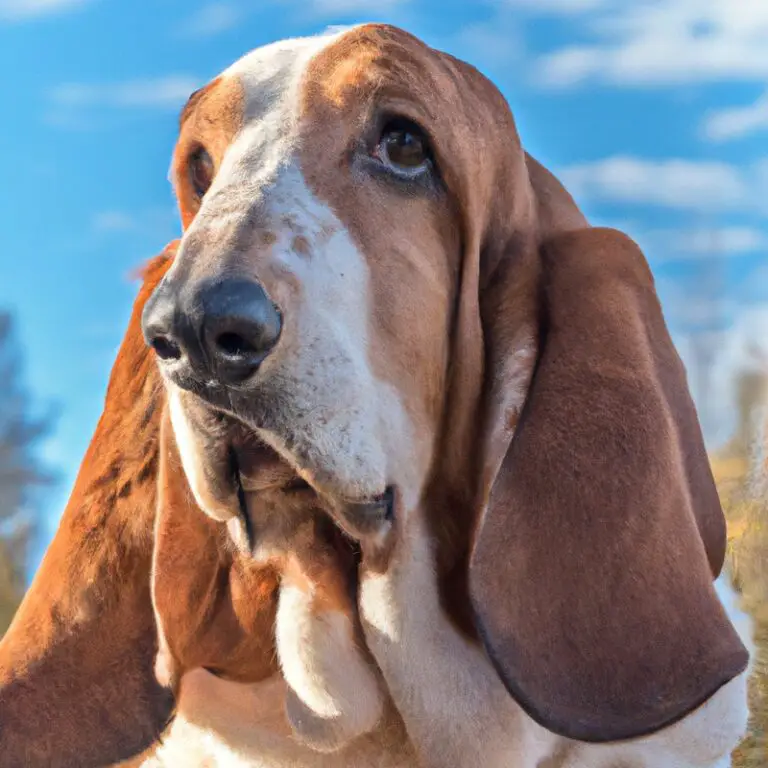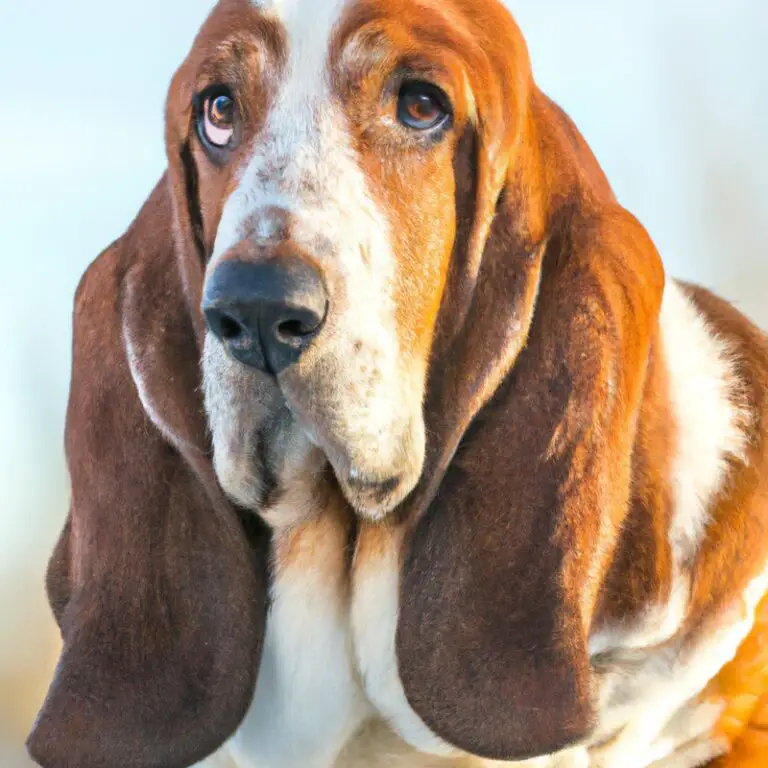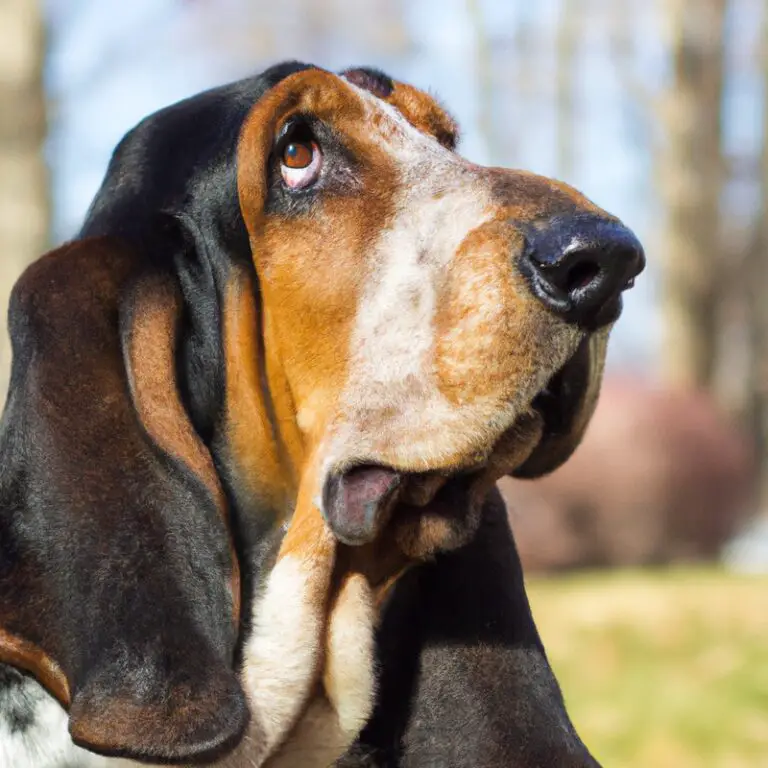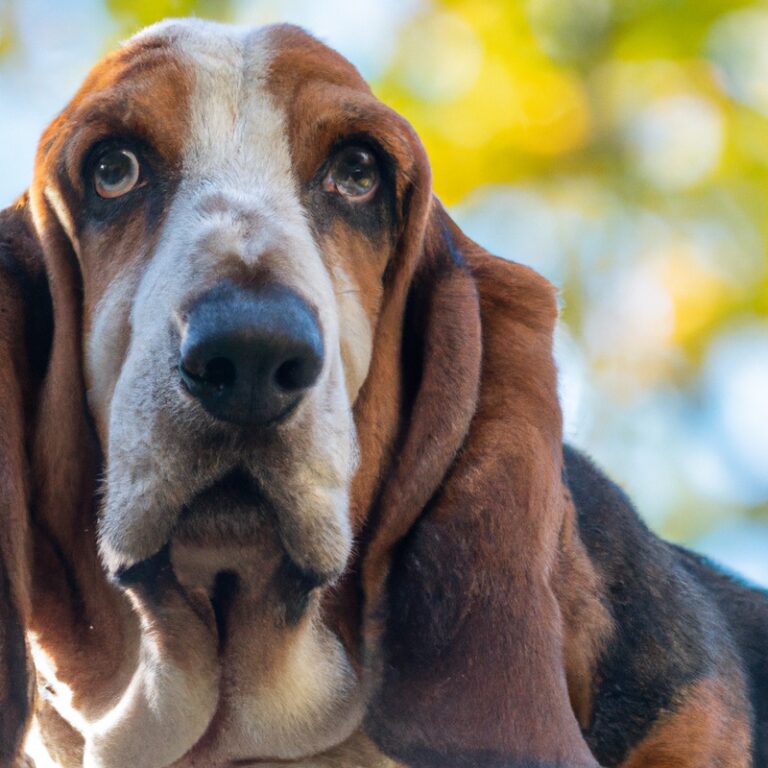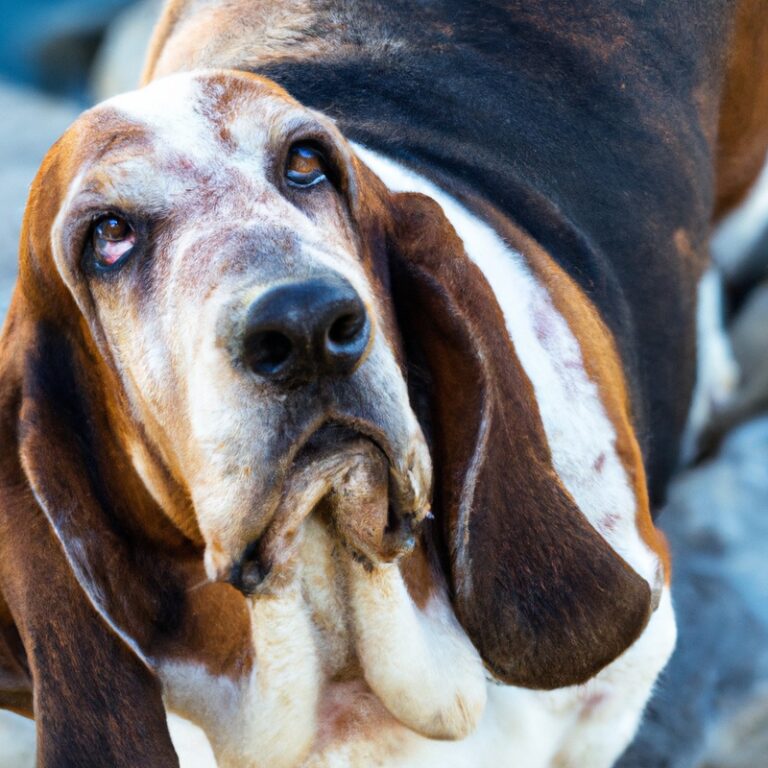How Do Basset Hounds Handle Being Left Alone For a Year?
Key Takeaways:
- Basset Hounds may experience separation anxiety if left alone for extended periods.
- Regular exercise and mental stimulation can help reduce the negative effects of being left alone.
- Basset Hounds may develop destructive behaviors if left alone for too long.
- Proper training and socialization can make it easier for Basset Hounds to handle being left alone.
Have you ever wondered how Basset Hounds manage to cope when left alone for extended periods, like a whole year?
As an expert in canine behavior and training, I’ve delved into the nature of these lovable droopy-eared dogs to shed some light on their resilience and potential challenges.
In this article, we’ll explore the unique breed characteristics and temperament of Basset Hounds, as well as the effects of separation anxiety on their well-being.
I’ll also provide you with practical tips to prepare your furry friend for solitude, coping strategies to alleviate boredom, and how to seek professional help if needed.
So, let’s dive in and discover how these adorable companions handle being alone!
| Basset Hounds Being Left Alone for a Year | |
|---|---|
| Aspect | How Basset Hounds Handle |
| Separation Anxiety | Basset hounds are prone to separation anxiety, and being left alone for a year can exacerbate this condition. They may become destructive, vocalize excessively, or engage in self-harming behaviors. |
| Emotional Well-being | Being left alone for such an extended period can have a negative impact on a basset hound’s emotional well-being. They may become depressed, lethargic, or exhibit signs of distress. |
| Exercise and Stimulation | Basset hounds require regular exercise and mental stimulation. Without proper exercise and engagement, they may develop behavioral problems and become overweight. |
| Health and Hygiene | Leaving a basset hound alone for a year can lead to health and hygiene issues. They may develop infections, muscle atrophy, or other physical ailments due to lack of care and attention. |
| Behavioral Changes | Prolonged isolation can result in significant behavioral changes in basset hounds. They may become more anxious, aggressive, or develop undesirable habits such as excessive barking or digging. |
Understanding the Nature of Basset Hounds
Basset Hound breed characteristics and temperament
Basset Hounds are known for their distinctive appearance and laid-back nature.
These dogs have short legs, long ears, and a droopy expression.
They are friendly, gentle, and patient, making them great family pets.
Bassets are generally good with children and get along well with other animals.
However, they can be stubborn and independent at times, which can make training a bit challenging.
Bassets also have a keen sense of smell and love to follow scents, so it’s important to keep them on a leash or in a secure area when outside.
Overall, Basset Hounds have a lovable and easygoing temperament.
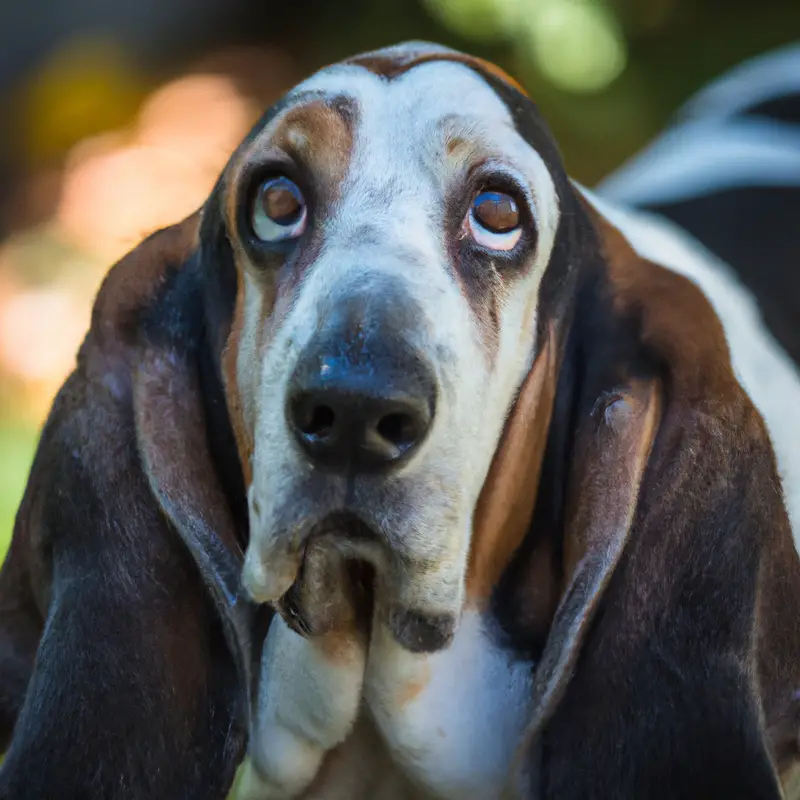
Separation anxiety in Basset Hounds and its effects
Basset Hounds are known to be prone to separation anxiety, a condition in which they experience distress when left alone. This can result in behaviors like excessive barking, destructive chewing, and even house soiling.
The effects of separation anxiety on Basset Hounds can be detrimental to their well-being and your home.
It’s important to address this issue by gradually acclimating your dog to being alone, providing mental and physical stimulation before leaving, and considering professional help for extreme cases. Understanding and addressing separation anxiety can greatly improve your Basset Hound’s quality of life.
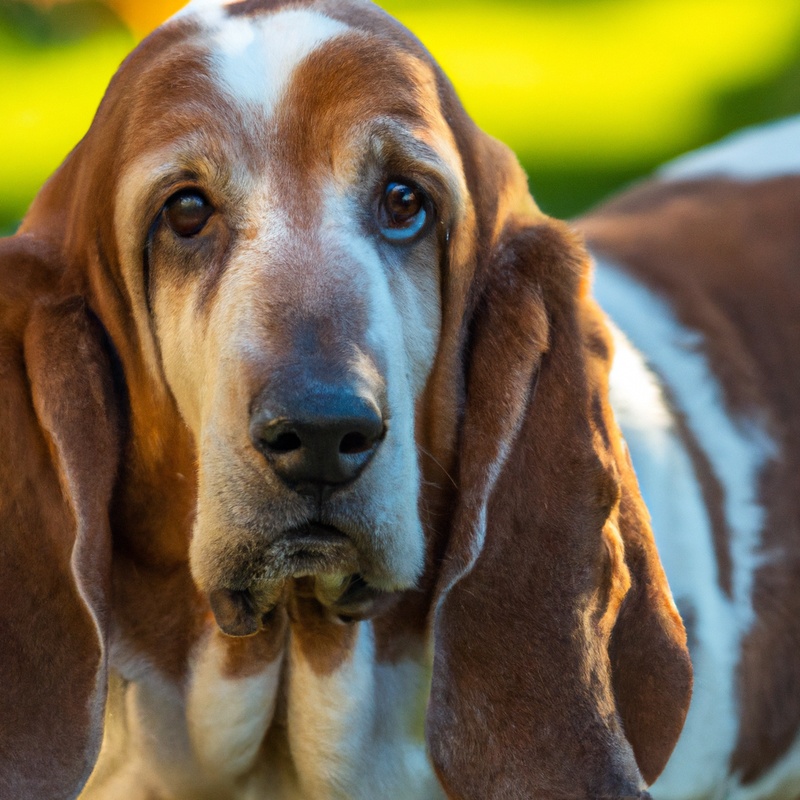
Factors That Influence a Basset Hound’s Ability to Be Left Alone
Age and maturity level of the Basset Hound
The age and maturity level of a Basset Hound can greatly influence their ability to be left alone.
Young puppies generally have shorter attention spans and higher energy levels, which can make them more prone to anxiety when left alone.
As they mature and reach adulthood, Basset Hounds tend to become more independent and better able to handle periods of solitude.
However, every dog is unique, so it is important to consider their individual temperament and behavior when assessing their ability to be left alone.
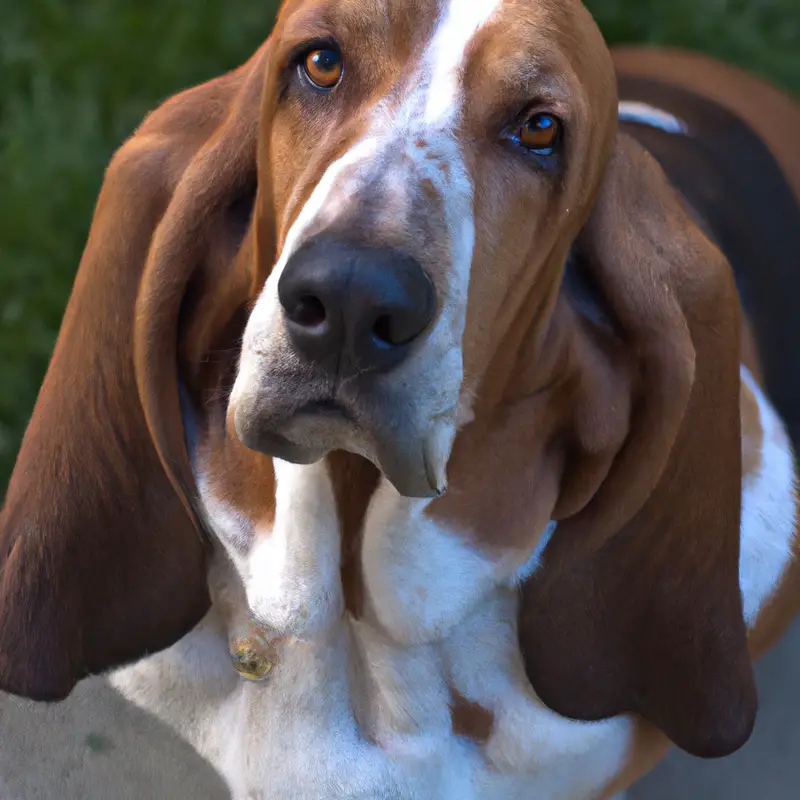
Training and socialization history of the dog
A Basset Hound’s training and socialization history plays a key role in how they handle being left alone.
If a dog has received proper training and socialization from a young age, they are more likely to be comfortable and confident when left alone.
Dogs that have been exposed to different people, animals, and environments are generally more adaptable and less prone to anxiety.
On the other hand, a lack of training and socialization can lead to fear and insecurity, which may make it more difficult for the dog to handle being alone.
Overall health and well-being of the Basset Hound
The overall health and well-being of a Basset Hound is crucial for their happiness and ability to be left alone. Regular visits to the veterinarian for check-ups and vaccinations are important to ensure they stay healthy.
A nutritious diet, regular exercise, and mental stimulation are also key for their well-being.
Basset Hounds are prone to certain health issues, so keeping an eye out for any signs of discomfort or illness is essential. Additionally, providing them with a safe and comfortable environment at home will contribute to their overall well-being.
Tips to Prepare Your Basset Hound for Being Alone
Gradual desensitization to being alone
One effective way to help your Basset Hound become more comfortable with being alone is through gradual desensitization. Start by leaving your dog alone for short periods of time, gradually increasing the duration as they become more accustomed to it.
Make sure to provide them with a safe and comfortable space, and engage them with interactive toys or treat puzzles.
Additionally, try to establish a predictable routine before you leave and when you return, as this can help provide a sense of security for your Basset Hound.
Creating a comfortable and stimulating environment
To create a comfortable and stimulating environment for your Basset Hound when you’re away, consider these tips:
- Provide a cozy space: Set up a designated area where your dog can relax, including a comfortable bed or blanket.
- Leave entertainment: Keep your dog occupied with interactive toys, puzzle feeders, or treat-dispensing toys, which will provide mental stimulation and help prevent boredom.
- Background noise: Leave some calming background noise, like soft music or a television show, to provide a sense of companionship.
- Use scent cues: Leave an item with your scent, like a t-shirt, to reassure your Basset Hound and make them feel more secure.
- Natural light and fresh air: Ensure that the room your dog is in has access to natural light and fresh air, creating a more pleasant environment.
By implementing these strategies, you can help create a comfortable and stimulating environment for your Basset Hound, promoting their well-being even when you’re not there.
Providing mental and physical stimulation before leaving
To ensure that your Basset Hound is mentally and physically stimulated before you leave, consider these tips:
- Playtime: Engage in interactive games like fetch or hide-and-seek to get their energy out before you go.
- Puzzle toys: Provide challenging toys that dispense treats to keep them mentally engaged while you’re away.
- Training sessions: Spend some time practicing obedience commands and tricks to keep their mind sharp.
- Walk or exercise: Take your Basset Hound for a long walk or enjoyable exercise session to tire them out.
- Rotating toys: Rotate their toys regularly to prevent boredom and keep their interest.
- Quality time: Spend quality time with your dog, giving them attention, affection, and cuddles, before you leave.
Remember to assess your Basset Hound’s likes and dislikes to provide suitable mental and physical stimulation tailored to their preferences.
Coping Strategies for Basset Hounds Left Alone
Interactive toys and puzzles to alleviate boredom
Interactive toys and puzzles are great for alleviating boredom in Basset Hounds. They provide mental stimulation and keep your dog engaged while you’re away.
Consider puzzle toys that require them to figure out how to access hidden treats or toys.
Interactive balls and treat-dispensing toys are also excellent choices. These toys can keep your Basset Hound occupied and entertained, preventing them from becoming bored and destructive.
Incorporating interactive toys into your dog’s routine can help make being alone more enjoyable for them.
Calming aids and environmental enrichment techniques
Calming aids such as music, aromatherapy, and pheromone diffusers can help relax and soothe your Basset Hound when they are left alone. Environmental enrichment techniques, like providing interactive toys and puzzle feeders, can keep them mentally stimulated and prevent boredom.
Creating a safe and comfortable space for your Basset Hound, with cozy bedding and familiar scents, can also help them feel more secure.
Remember to gradually introduce these calming aids and enrichment techniques to your Basset Hound before leaving them alone for extended periods.
Seeking Professional Help for Extreme Cases
Recognizing severe separation anxiety symptoms
Recognizing severe separation anxiety symptoms in Basset Hounds is essential for their well-being. Some signs to watch out for include destructive behaviors like chewing and scratching, excessive barking or howling, house soiling, and attempts to escape.
They may also show signs of distress such as panting, drooling, pacing, or refusing to eat.
If you notice these symptoms, it’s crucial to consult a veterinarian or an animal behaviorist for a proper diagnosis and guidance on how to address the issue.
Consultation with a veterinarian or animal behaviorist
If you’re facing extreme cases of separation anxiety with your Basset Hound, consulting with a veterinarian or animal behaviorist can be invaluable. These professionals have the expertise to assess your dog’s behavior, diagnose any underlying issues, and suggest suitable treatment options.
They can provide you with a customized training plan and guide you in implementing behavior modification techniques to address your Basset Hound’s anxiety.
With their professional guidance, you can work towards helping your furry friend feel more comfortable and secure when left alone.
Potential treatment options and behavior modification techniques
When it comes to addressing separation anxiety in Basset Hounds, there are several potential treatment options and behavior modification techniques. One approach is medication, which can help manage the symptoms of anxiety.
Consultation with a veterinarian or animal behaviorist is crucial to determine if medication is necessary and to obtain the appropriate prescription.
Another technique is desensitization and counterconditioning, which involve gradually exposing the dog to being alone and pairing it with positive experiences. Engaging in training exercises, providing mental and physical stimulation, and creating a safe and comfortable environment are also important in helping the dog cope with being alone.
Final Verdict
It is important to understand the nature of Basset Hounds and their unique temperament when it comes to handling being left alone.
Factors such as age, training, and overall health can influence their ability to cope with solitude.
To prepare your Basset Hound for being alone, gradual desensitization, creating a comfortable environment, and providing mental and physical stimulation are crucial.
Coping strategies such as interactive toys, calming aids, and establishing a routine can also help alleviate boredom and anxiety.
In extreme cases, seeking professional help from a veterinarian or animal behaviorist is recommended for proper assessment and potential treatment options.
Overall, with the right approach, Basset Hounds can adapt and thrive even when left alone.

